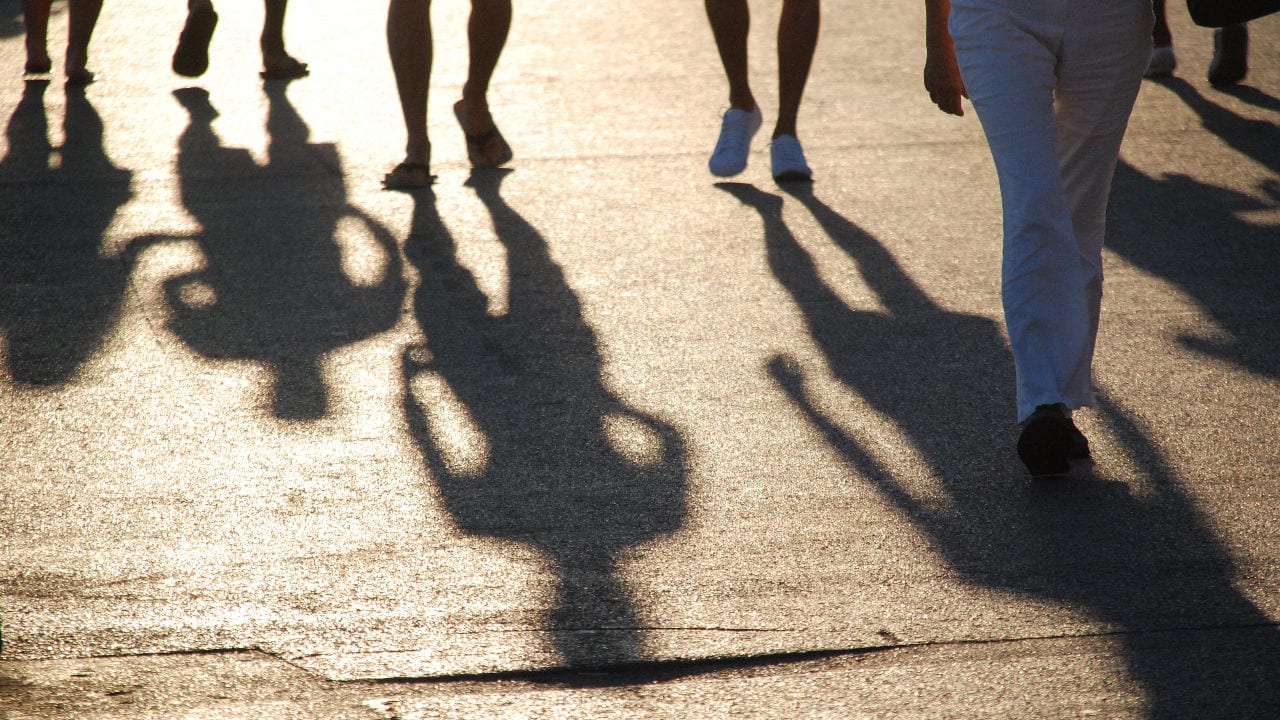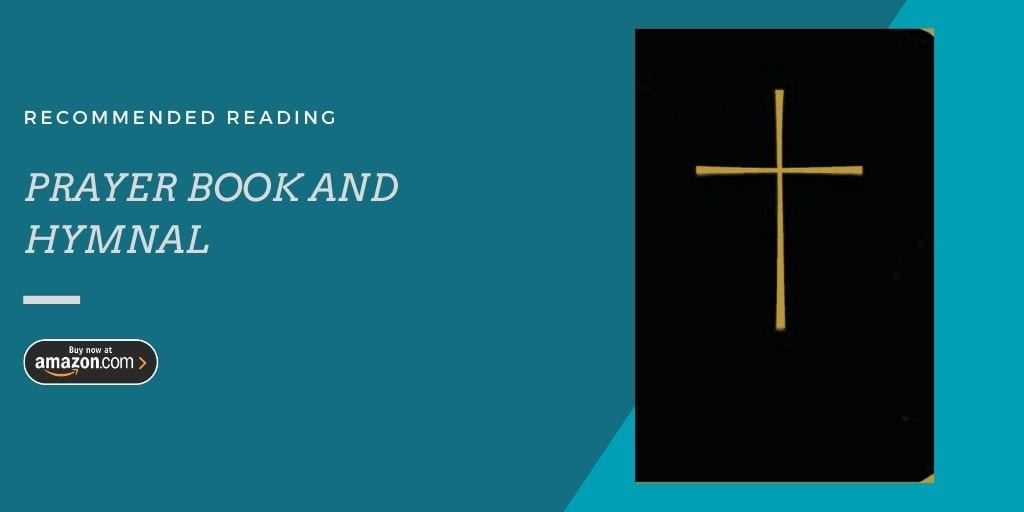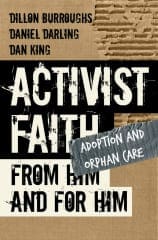What does it mean to be human, especially from a Biblical Christian worldview?
With all of the division (political, racial, etc) we see in the world today, it seems that understanding human nature would help us relate better to one another. We need to see each other for what we are, and recognize that we’re all the same in this sense.
A great friend of mine (who is an Episcopal priest) recently sent me The Book of Common Prayer. And I’ve been relentless in my study of it. While I’ve been a devoted Christ-follower for over 20 years, one of my favorite parts of it so far is the Catechism (a.k.a. An Outline of the Faith). It’s simple and direct question/answer approach to important foundational and theological beliefs is simply fantastic.
The introduction to the Catechism states that, “it is a point of departure,” for deeper conversations on Christian belief and practice.
And when I read the six questions it contains about human nature, I can’t help but to consider how this helps me relate better to other people and to God. So, I’m going to unpack each of these questions and answers a bit.
It’s also worth noting that these perspectives are my own. And I’d love nothing more than to better understand how you process these ideas too.
What are we by nature?
We are part of God’s creation, made in the image of God.
This is one of the most encouraging and humbling statements I think I’ve ever heard.
It’s encouraging in the sense that we were made in the very image and likeness of the One who created everything. God made the light, all of the stars and planets, the water, the earth, every tree and plant growing on it, every fish and creature of the sea, every bird in the air, every walking animal, the air we breathe…
Everything.
And then He stepped back and said (paraphrasing), “Now it’s time to make something like me.” And then with His own hands, he crafted mankind and breathed (His) life into us. No other creature has this distinction. To be human is different than the animals.
Our place in the Universe is special. It is set apart from everything else. Nothing can be more encouraging than that!
But it’s also humbling in the sense that it puts us in our place. We are the created. Too often we hold ourselves in much higher esteem than we really are. And some of the next questions in this section of the Catechism dives deeper into this. But for now, it’s important to recognize that while our place is certainly special, we should know our role. And that’s not the role of the Creator. This existence doesn’t center around us.
All that to say that the human experience is a beautiful and set-apart one. The next question/answer explores that even more.
What does it mean to be created in the image of God?
It means that we are free to make choices: to love, to create, to reason, and to live in harmony with creation and with God.
Freedom.
The power to decide and make choices is incredible. And the types of choices we have the ability to make all contribute to whether our experience is good or bad. Consequences don’t go away. But we can decide what our lives are going to be like.
We get to love. That also means we can decide to hate. Either way, we have the ability to figure out how we’re going to relate to others. The freedom to love is a key element in our relationship to God, too. If we didn’t have the ability to chose to love Him, then it wouldn’t be love. We can love someone because we want to.
The freedom to create is one of those things I feel like makes us most like God, the Creator of everything. He has given us that same ability to imagine and dream of things that don’t exist. And we also have the ability to make it a reality. Humans throughout history have created beautiful works of art, built incredible pieces of architecture, and even crafted amazing culinary experiences. The ways in which human creativity changes our world is immeasurable!
Then there’s the ability (and freedom) to reason. God created us with minds that we can (and should) use. We can have different ideas and talk those out with each other. People often (selfishly) think that their idea is the best (or only) way. Our stance should be more of one that recognizes that everyone has the God-given ability to think on their own, and that we can reason with each other to work those ideas out. Often, opposing ideas can be reasoned together to come up with an even better idea.
Finally, we have the ability to live in harmony with creation and with God. The next questions explore this idea further. But I’ll start by saying that we can choose to live in harmony. When division arises between people (for any reason), it’s there because we are choosing to not live in harmony with others (also part of Creation).
Why then do we live apart from God and out of harmony with creation?
From the beginning, human beings have misused their freedom and made wrong choices.
This one makes me think about my kids. Imagine that it’s back-to-school time. And rather than taking them shopping for (much needed) school clothes and supplies, I just hand them a few hundred dollars and let them know that they can do what they want.
I get the feeling that out of my five kids, some of them are going to make the right decision and go buy the things they need. Heck, some may even impress me and bargain shop or whatever, and get more with it than what I might have done with the money myself.
But then others would take it and start dreaming… “I really want to get an X-box (or Playstation, or whatever)!” And they would disregard the intent of what the money was for, and they would try to satisfy their own desires instead. As school starts, and they don’t have the things they need, it would be obvious that they made a wrong choice.
In the same way, we often abuse our freedoms to serve our own purposes. Many (maybe even most) of us take the freedoms we have and our eyes light up with the possibilities of what we can do (for ourselves) with it.
That’s the very nature of freedom. When it’s been given, we can choose how we’re going to wield it. Will we be responsible with it? Or misuse it?
Why do we not use our freedom as we should?
Because we rebel against God, and we put ourselves in the place of God.
I recently had a conversation with one of my boys (currently 11 years old) about this. He’s had some moments of not respecting rules and guidelines and boundaries. (Honestly, he’s a great kid. But we all go through this as we grow up, right?) When I talk with him about his decisions, it’s very clear that the only one he was thinking about is himself.
Self-serving desires often cloud our judgement and manifest as rebellion.
It doesn’t even mean that we need to hate God or anything extreme like that. Honestly, it’s just about putting ourselves first and making decisions like we are Him. And going back to the humbling part of that first question/answer, that’s not our role.
With my son, I try not to destroy him. I want him to have the freedom to make decisions. I just hope they are the right decisions. So I need to coach him (lovingly) to consider how his decisions impact others. Is he putting himself at the center of the Universe. Or is he considering how his actions reflect important things, like love (like in that second question/answer)?
Dealing with this in our lives starts with recognizing one simple fact. I am not God.
What help is there for us?
Our help is in God.
The best part of this response is that we have the One who created the entire Universe in our corner. Just like I am with my son, even when we make bad decisions, God is there for us when we need His guidance.
He will let us, rightfully, suffer the consequences of our decisions and actions. But if we look to Him for answers and mentoring on how to navigate this life, He’s there.
As a parent, I want the best for all of my kids. I know they won’t make every decision in their life exactly as I will. And no matter what they do, I make sure they know that I’m here for them if they want my perspective. And as their dad, I love the opportunity to sow into them and then watch to see how they take what I’ve given them and turn it into their own life decisions.
This question/answer is another encouraging one. I see God being there, always willing to give me guidance, and then cheering me on as I move forward with it. And when (not if, but when) I fail, He’s right there to encourage me, pick me up, and help me care for my wounds. When I get it right and succeed, maybe even do something particularly special or creative with what He gave me, there’s no bigger cheerleader than Him.
How did God first help us?
God first helped us by revealing himself and his will, through nature and history, through many seers and saints, and especially through the prophets of Israel.
This is why I have such a passion for the Word. But that’s not the only way God reveals Himself to us. I love how this answer describes how God also reveals Himself to us through nature, history, seers and saints.
All of Creation reveals who He is and His nature. If we take a moment and just look around at the world around us, we’ll see the evidence of a Creator who cares deeply about the centerpiece of His Creation (us). We see incomparable beauty. We see balance and order. And we see ideas like love and justice in action. All of these things can and should inspire us.
I also love getting into the stories of all of those who have gone before us. In the Bible, I think of guys like Stephen, the man who made Jesus stand up next to the Throne. I think of reformers who saw abuses of power inside the church and did things like translating the Bible into the common languages of the people. And just so many others who fought for justice and righteousness throughout history. Their stories show us what a life marked by God looks like, and gives us practical examples of a life well lived.
The Bible is certainly the centerpiece of God’s communication with us. But He speaks to us in so many other ways. We just need to look for it, and learn what He’s teaching us through all of it.
Final Thoughts
As I begin reading through the Catechism, this has been a great starting point. Exploring human nature and how it fits with God’s design is a great place to start! We definitely need to understand where we fit into everything before all else.
I believe it’s also a core element to how we can discover more peace in our divided society. As we begin to understand our role, we can drop the pride that elevates us above everyone and everything else. We can also start to view other people, even those with differing ideas than our own, as equally important in the grand scheme of things. When we see that kind of value in other people, then maybe, just maybe, we can work past our often petty issues and perspectives.
More than anything else, this helps me see just how much God loves each and every one of us. His plan was intentional, and I can see His heart to have a deep and meaningful relationship with us. After all, we are His pride and joy!
Thank you, God. I love you, too!






This was beautiful, Dan! I literally teared up when you mentioned the stoning of Stephen and how Jesus stood …. that is so powerful and I had not looked at the text in that way but it really hit home. Thank you for that!!
Wow… thanks, Sandi! That is a powerful text. And it’s one that has made Stephen one of my favorite people ever. That’s the kind of life I want to live.
“I believe it’s also a core element to how we can discover more peace in our divided society. As we begin to understand our role, we can drop the pride that elevates us above everyone and everything else. We can also start to view other people, even those with differing ideas than our own, as equally important in the grand scheme of things. When we see that kind of value in other people, then maybe, just maybe, we can work past our often petty issues and perspectives.“
This has been the core value in how I dialogue with people. It’s so important to remember we are all equally made in God’s image, and to truly listen to one another. Thanks for this – great piece.
Thanks, Crystal! It’s definitely been a great exercise for me to look at the Catechism (and all of the BCP) and think through what it means for my actions and daily living. I’m looking forward to studying and discussing more of it!